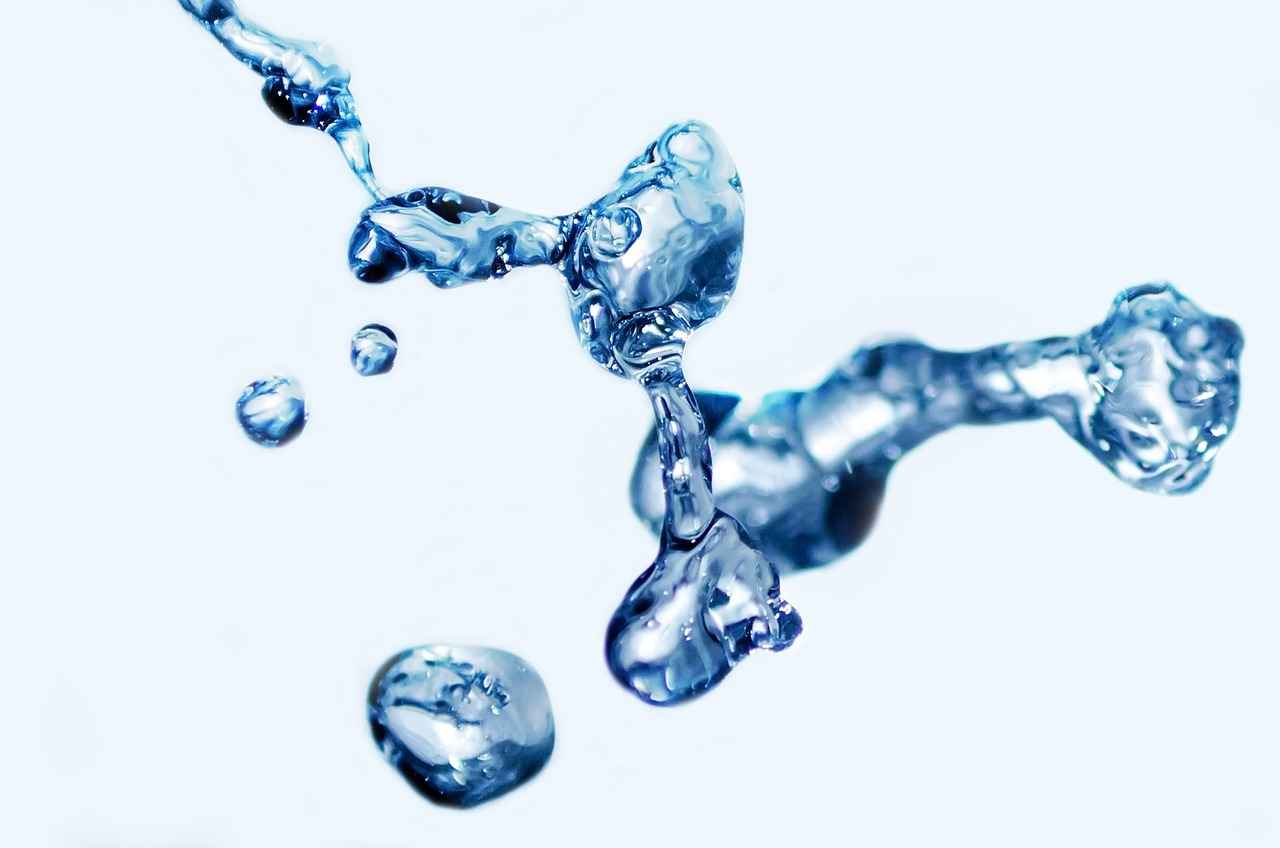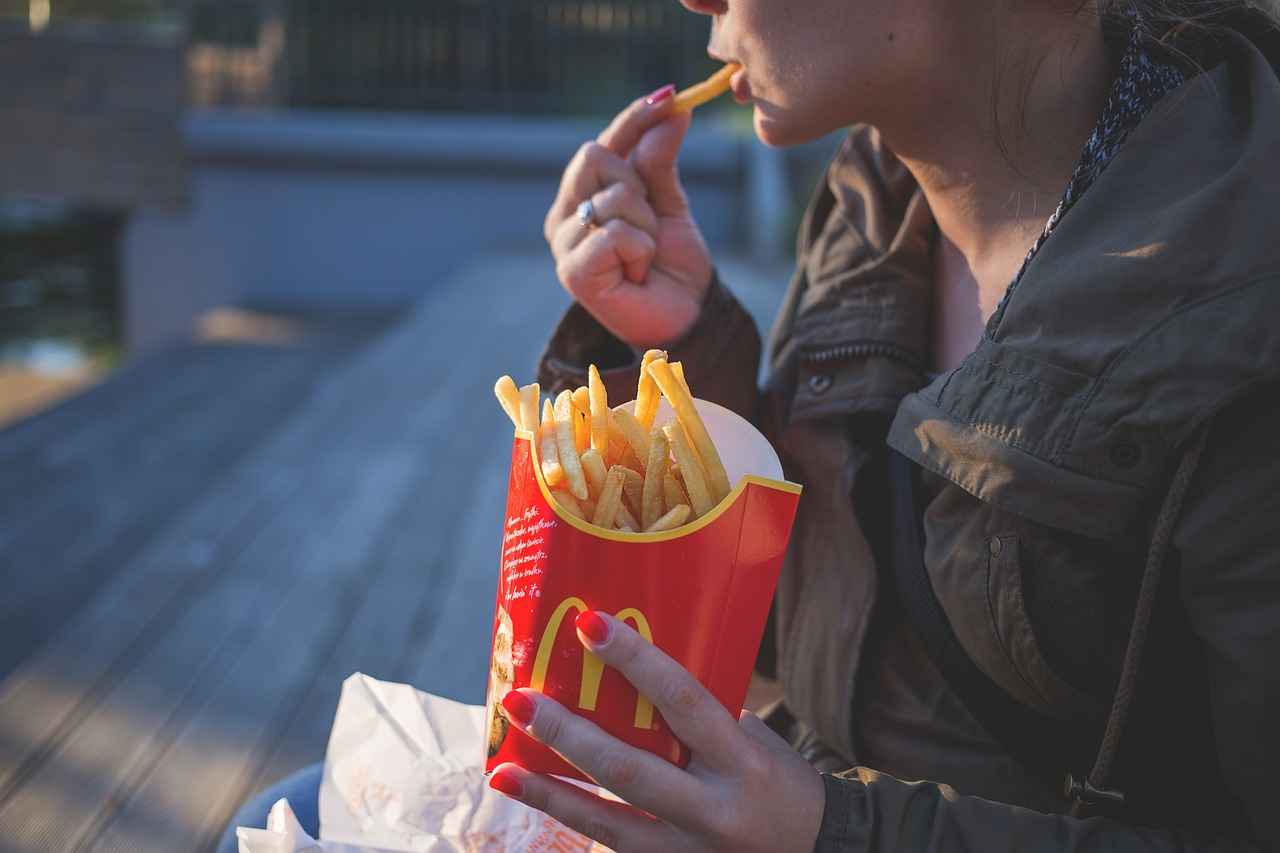This article explores the physiological and psychological effects of water fasting, detailing the stages your body undergoes during this practice and the potential benefits and risks involved.
What is Water Fasting?
Water fasting is a dietary practice that involves abstaining from all food and caloric beverages, consuming only pure water for a designated period. Historically, this method has been utilized for various reasons, including religious observances, detoxification, and weight loss. Cultures across the globe have embraced fasting, recognizing its potential to promote spiritual clarity and physical health.
How Does Water Fasting Work?
Understanding the mechanisms behind water fasting is crucial. Initially, the body relies on glucose stored in the liver and muscles for energy. However, as fasting continues, the body begins to shift its energy source from glucose to fat. This transition is essential for sustaining energy levels during prolonged periods without food.
The Role of Ketosis
During extended water fasting, the body enters a metabolic state known as ketosis. In this state, fat is broken down into ketones, which serve as an alternative energy source. Typically, ketosis begins after 24 to 48 hours of fasting, depending on individual metabolism and activity levels.
Benefits of Ketosis
- Enhanced Fat Burning: Ketosis promotes the efficient burning of stored fat, which can lead to weight loss.
- Improved Mental Clarity: Many individuals report heightened focus and cognitive function during ketosis.
Potential Downsides of Ketosis
While ketosis has numerous benefits, it can also lead to side effects such as fatigue, irritability, and digestive discomfort. It’s essential to monitor your body’s response and consult with a healthcare professional if adverse symptoms arise.
Physiological Changes During Water Fasting
Water fasting triggers various physiological changes, including a decrease in metabolic rate and hormonal shifts. For instance, insulin levels drop, facilitating fat storage reduction and enhancing fat utilization for energy.
Psychological Effects of Water Fasting
Fasting can profoundly impact psychological well-being, yielding both positive and negative effects. Many individuals experience improved mood and focus, while others may face challenges such as cravings and irritability.
Improved Mental Clarity
Heightened mental clarity is a common report among those practicing water fasting. This phenomenon may be linked to increased ketone production, which provides a more efficient fuel source for the brain.
Challenges and Cravings
Despite the benefits, individuals may encounter psychological hurdles during fasting. Common challenges include intense cravings and emotional fluctuations, which can test one’s resolve and commitment to the fasting process.
Health Benefits of Water Fasting
Water fasting is associated with several health benefits, including weight loss and improved metabolic health. Research suggests that fasting can enhance insulin sensitivity and lower inflammation, contributing to overall well-being.
Weight Loss and Body Composition
One of the most notable effects of water fasting is significant weight loss. As the body utilizes fat stores for energy, individuals often experience a reduction in body fat percentage and improved body composition over time.
Potential for Disease Prevention
Emerging studies indicate that water fasting may help reduce the risk of chronic diseases such as diabetes and heart disease. The anti-inflammatory effects of fasting could play a crucial role in promoting long-term health.
Risks and Considerations of Water Fasting
While water fasting offers potential benefits, it is not suitable for everyone. Certain populations, including pregnant women, individuals with eating disorders, and those with specific medical conditions, should avoid fasting without professional guidance.
Who Should Avoid Water Fasting?
- Pregnant or breastfeeding women
- Individuals with a history of eating disorders
- People with chronic health conditions
Signs of Dehydration and Nutrient Deficiency
During water fasting, it’s vital to monitor for signs of dehydration and nutrient deficiencies. Symptoms may include dizziness, fatigue, and headaches. Recognizing these signs early can help mitigate health risks associated with prolonged fasting.

What is Water Fasting?
Water fasting is a dietary practice that involves abstaining from all food and caloric beverages, allowing only the consumption of water for a designated period. This method has gained popularity in recent years due to its potential health benefits, but its roots stretch deep into various historical and cultural contexts.
Historically, water fasting has been practiced for centuries across different cultures and religions. For instance, many spiritual traditions incorporate fasting as a means of purification and self-discipline. In Christianity, fasting is often observed during Lent, while in Islam, fasting during Ramadan is a significant spiritual practice. Similarly, in ancient cultures, fasting was sometimes employed as a form of healing or detoxification.
In addition to its spiritual significance, water fasting has been recognized for its potential health benefits. Research indicates that fasting can trigger various physiological changes in the body, such as improved metabolic function and enhanced cellular repair processes. These changes are believed to contribute to the potential health benefits associated with water fasting.
- Historical Significance: Water fasting has been utilized in ancient healing practices, including Ayurvedic medicine and traditional Chinese medicine, where it was believed to promote longevity and vitality.
- Cultural Practices: Various cultures have embraced fasting as a way to connect with the divine or achieve mental clarity, highlighting its importance beyond mere dietary restriction.
- Modern Applications: In contemporary health and wellness communities, water fasting is often promoted for its potential to support weight loss, enhance metabolic health, and improve mental clarity.
From a scientific perspective, understanding the mechanisms behind water fasting is critical. During the fasting state, the body undergoes a metabolic shift where it transitions from using glucose as its primary energy source to utilizing stored fats. This process can lead to the production of ketones, which serve as an alternative energy source for the brain and body.
Furthermore, the physiological benefits of water fasting extend beyond weight loss. Studies suggest that fasting may help reduce inflammation, improve insulin sensitivity, and promote autophagy—a cellular repair process that removes damaged cells and regenerates new ones. This aspect of fasting is particularly appealing to those looking to enhance their overall health and longevity.
However, it is essential to approach water fasting with caution. Individuals considering this practice should be aware of their health status and consult healthcare professionals, especially those with underlying medical conditions or specific dietary needs. Monitoring for signs of dehydration and nutrient deficiency is crucial during any fasting regimen.
In summary, water fasting is not merely a modern trend but a practice rooted in history and culture with significant implications for health and wellness. As more individuals explore the potential benefits of fasting, understanding its definition, historical context, and physiological effects becomes increasingly important.

How Does Water Fasting Work?
Water fasting is a practice that has gained popularity for its potential health benefits, but understanding how it works is essential for anyone considering this approach. During water fasting, the body undergoes significant metabolic changes as it adapts to the absence of food. This section will explore the mechanisms behind these changes, focusing particularly on how the body transitions from using glucose to fat as its primary energy source.
Initially, when you begin a water fast, your body relies on glucose for energy. Glucose is derived from carbohydrates consumed in your diet and is the body’s preferred energy source. However, the body’s glucose stores are limited, typically lasting for about 24 to 48 hours. Once these stores are depleted, the body must find alternative energy sources to maintain its functions.
As fasting continues, the liver starts to break down stored fat into fatty acids and glycerol through a process called lipolysis. These fatty acids are then converted into ketones in the liver, a process that marks the beginning of ketosis. Ketosis is a metabolic state in which the body becomes highly efficient at burning fat for energy instead of relying on carbohydrates. This transition is crucial as it allows the body to sustain energy levels during prolonged fasting periods.
During ketosis, the brain and other organs utilize ketones as an alternative energy source, which can lead to enhanced mental clarity and focus. Many individuals report feeling a surge in energy and cognitive function after the initial adjustment period of fasting. This phenomenon occurs because ketones provide a more stable energy source compared to glucose, which can cause spikes and crashes in blood sugar levels.
Moreover, the shift to fat metabolism during fasting has several physiological benefits. For one, it can lead to improved insulin sensitivity, which is beneficial for metabolic health. As the body reduces its reliance on glucose, it may also experience a decrease in inflammation and oxidative stress, contributing to overall well-being.
However, it is important to note that the transition to ketosis can come with challenges. Some individuals may experience symptoms such as fatigue, headaches, or irritability during the initial stages of fasting, often referred to as the “keto flu.” These symptoms are generally temporary and can be mitigated by staying well-hydrated and ensuring adequate electrolyte intake.
In summary, understanding the mechanisms behind water fasting reveals the body’s remarkable ability to adapt to different energy sources. By shifting from glucose to fat, the body not only maintains its energy levels but also unlocks potential health benefits associated with ketosis. This knowledge can empower individuals to approach water fasting with a better understanding of what to expect and how to manage the process effectively.
The Role of Ketosis
Ketosis is a significant metabolic state that arises during prolonged fasting, where the body shifts its primary energy source from carbohydrates to fats. This transition is crucial for understanding how our bodies adapt to fasting and the implications it has on energy production and overall health.
When the body is deprived of food, typically after 12 to 24 hours of fasting, it begins to deplete its glycogen stores—these are the stored carbohydrates in the liver and muscles. Once these stores are diminished, the body enters a state of ketosis. During this phase, the liver converts fatty acids into ketone bodies, which serve as an alternative energy source for the brain and other tissues.
There are several key factors that influence the onset of ketosis:
- Duration of Fasting: The length of time without food is critical. Generally, ketosis begins to take effect after 24 hours of fasting, but can vary based on individual metabolism and activity levels.
- Carbohydrate Intake: For those who consume a low-carbohydrate diet prior to fasting, the transition into ketosis may occur more rapidly compared to those with a higher carbohydrate intake.
- Physical Activity: Engaging in physical activity during fasting can accelerate the depletion of glycogen stores, hastening the onset of ketosis.
Once in ketosis, the body experiences several profound changes. One of the most notable is enhanced fat oxidation, which can lead to effective fat loss. Additionally, ketone bodies are known to provide a stable energy source, reducing fluctuations in blood sugar levels and promoting mental clarity.
However, the transition into ketosis is not without its challenges. Some individuals may experience symptoms known as the keto flu, which can include fatigue, irritability, and headaches. These symptoms typically arise as the body adapts to utilizing ketones for energy instead of glucose.
Moreover, ketosis has been linked to various health benefits beyond weight loss. Research suggests that it may improve metabolic health, enhance brain function, and even provide protective effects against certain chronic diseases. For instance, ketones have been shown to have neuroprotective properties, which may benefit individuals with neurodegenerative conditions.
In summary, ketosis is a complex metabolic state that occurs during prolonged fasting, facilitating a shift in energy production from carbohydrates to fats. Understanding how and when the body enters ketosis can provide valuable insights into the potential benefits and challenges associated with fasting. This knowledge empowers individuals to make informed decisions about their dietary practices and health.
Benefits of Ketosis
Entering ketosis can lead to a variety of significant health benefits, making it a popular topic among those interested in weight loss and improved mental performance. Ketosis is a metabolic state in which the body shifts from using glucose as its primary energy source to utilizing fat. This transition occurs when carbohydrate intake is drastically reduced, prompting the liver to produce ketones from stored fat. Below, we explore the numerous advantages associated with this metabolic state.
- Enhanced Fat Burning: One of the most recognized benefits of ketosis is its ability to promote fat burning. When the body is in a state of ketosis, it becomes highly efficient at breaking down fat for energy, which can lead to significant weight loss. This process not only helps in reducing body fat but also in preserving lean muscle mass, which is crucial for maintaining metabolic health.
- Improved Mental Clarity: Many individuals report a remarkable increase in mental clarity while in ketosis. This improvement is attributed to the brain’s preference for ketones over glucose as an energy source. Ketones provide a more stable energy supply, which can enhance focus, concentration, and cognitive function. Additionally, some studies suggest that ketosis may help protect against neurodegenerative diseases.
- Stable Energy Levels: Unlike the energy spikes and crashes associated with high carbohydrate diets, ketosis leads to more stable energy levels throughout the day. This can result in improved physical performance and reduced fatigue, making it easier to engage in daily activities and exercise.
- Reduced Hunger and Cravings: Ketosis is known to suppress appetite, which can be beneficial for those looking to control their food intake. The production of ketones may influence hunger hormones, leading to a natural reduction in cravings and a greater sense of satiety after meals.
- Potential Therapeutic Benefits: Emerging research suggests that ketosis may offer therapeutic advantages for various health conditions. For example, ketogenic diets have been studied for their potential to help manage epilepsy, type 2 diabetes, and even certain types of cancer. The anti-inflammatory properties of ketones may play a role in these benefits.
While the benefits of entering ketosis are compelling, it is essential to approach this metabolic state with caution. Individuals considering a ketogenic diet or water fasting should consult with healthcare professionals to ensure it aligns with their health needs and goals. Understanding the balance between benefits and potential downsides can help individuals make informed decisions about their dietary choices.
In summary, the benefits of ketosis extend beyond weight loss to include improved mental clarity, stable energy levels, and potential therapeutic effects. By understanding these advantages, individuals can better appreciate the impact of dietary choices on their overall health and well-being.
Potential Downsides of Ketosis
When individuals enter a state of ketosis, they often experience a range of physiological changes that can be both beneficial and challenging. While the advantages of ketosis, such as enhanced fat burning and improved mental clarity, are frequently highlighted, it is essential to consider the potential downsides associated with this metabolic state.
One of the most commonly reported side effects of ketosis is fatigue. As the body adapts to utilizing fat as its primary energy source instead of carbohydrates, it may take time for individuals to adjust. This transitional phase can lead to feelings of tiredness and lethargy, particularly in the initial days of following a ketogenic diet or during prolonged fasting periods.
In addition to fatigue, many individuals also report increased irritability. The shift in energy sources can affect mood and emotional stability. This is often exacerbated by the initial reduction in carbohydrate intake, which can lead to fluctuations in blood sugar levels. As the body learns to stabilize energy levels through fat metabolism, irritability may diminish, but it can be a challenging hurdle for many.
- Digestive Issues: Some people may experience digestive discomfort, including constipation or diarrhea, as their bodies adjust to a higher fat intake and lower fiber consumption.
- Keto Flu: A collection of symptoms often referred to as the “keto flu” can occur during the adaptation phase. Symptoms may include headaches, nausea, and muscle cramps.
- Nutrient Deficiencies: Prolonged adherence to a strict ketogenic diet may lead to deficiencies in essential nutrients, particularly if a variety of foods is not consumed.
While these side effects can be significant, they are often temporary. For many, the body eventually adapts to ketosis, leading to improved energy levels and mood stabilization. However, it is crucial to monitor these symptoms and consult with a healthcare professional if they persist.
Moreover, it’s important to recognize that not everyone will experience these downsides to the same degree. Individual responses to ketosis can vary based on factors such as metabolic health, activity level, and dietary choices. To mitigate potential side effects, individuals considering ketosis should focus on a well-rounded approach, incorporating a variety of nutrient-dense foods and staying hydrated.
In conclusion, while ketosis offers numerous benefits, it is essential to be aware of the potential downsides. By understanding these challenges and preparing for them, individuals can better navigate their journey into ketosis, ensuring a more balanced and healthy experience.
Physiological Changes During Water Fasting
Water fasting is a practice that can trigger a variety of physiological changes in the body. As the body adjusts to the absence of food, it undergoes several significant transformations that affect metabolism, hormonal balance, and overall health.
Initially, when a person begins a water fast, the body relies on its glycogen stores for energy. Glycogen, which is stored in the liver and muscles, is converted back into glucose to fuel bodily functions. Typically, these stores can last for about 24 to 48 hours, depending on individual metabolism and activity levels. Once glycogen is depleted, the body enters a state known as ketosis.
- Metabolic Rate Adjustments: During the early stages of fasting, the metabolic rate may initially decrease as the body tries to conserve energy. However, as the fast continues, the body becomes more efficient at burning fat for fuel, which can ultimately lead to an increase in metabolic rate.
- Hormonal Shifts: Fasting induces various hormonal changes. Insulin levels drop significantly, which facilitates fat breakdown and promotes the use of fat as an energy source. Simultaneously, levels of glucagon increase, stimulating the release of stored fat from adipose tissue.
- Increased Growth Hormone: Water fasting can lead to a substantial increase in growth hormone levels, which plays a crucial role in fat metabolism and muscle preservation. This hormonal shift can enhance fat loss while helping to maintain lean muscle mass.
As the fast progresses, the body may also experience an increase in autophagy, a process where cells remove damaged components and recycle them for energy. This cellular cleanup can lead to improved cellular function and longevity.
Furthermore, fasting has been shown to influence inflammatory markers. Studies suggest that water fasting can reduce inflammation in the body, potentially lowering the risk of chronic diseases. This anti-inflammatory effect may be attributed to the reduction in insulin and other growth factors that promote inflammation.
Interestingly, the psychological effects of fasting can also lead to physiological changes. Many individuals report heightened mental clarity and focus during fasting periods, which can enhance productivity and cognitive functions. This mental state may be linked to the body’s increased production of neurotransmitters that improve mood and cognitive performance.
In summary, water fasting triggers a complex array of physiological changes that can lead to improved metabolic health, hormonal balance, and even cognitive function. While the initial stages may present challenges, the long-term benefits of fasting are increasingly supported by scientific research. As always, it is essential to approach fasting with caution and consider individual health conditions before undertaking such a practice.

Psychological Effects of Water Fasting
Water fasting, the practice of abstaining from all food and caloric beverages while consuming only water, can lead to a variety of psychological effects. These effects can be both positive and negative, influencing mood, focus, and overall mental clarity. Understanding these psychological aspects is crucial for anyone considering this fasting method.
One of the most notable positive effects reported by individuals during water fasting is an increase in mental clarity. Many people find that their thoughts become sharper and more focused. This phenomenon can be attributed to several factors:
- Reduced Distractions: Without the need to prepare and consume meals, individuals can redirect their focus towards productive tasks.
- Increased Ketone Production: As the body transitions into ketosis, ketones serve as an efficient fuel source for the brain, potentially enhancing cognitive function.
- Heightened Awareness: Fasting can trigger a state of heightened awareness, allowing individuals to engage more deeply with their thoughts and surroundings.
However, alongside these benefits, water fasting can also present psychological challenges. Common issues that individuals may experience include:
- Cravings and Hunger: The absence of food can lead to intense cravings, which may distract from mental clarity and cause irritability.
- Emotional Fluctuations: Many people report mood swings, which can be attributed to hormonal changes and the stress of fasting.
- Social Isolation: Fasting can lead to feelings of isolation, especially in social settings where food is a central element.
It’s important to note that the psychological effects of water fasting can vary significantly from person to person. Factors such as individual mindset, previous fasting experience, and overall mental health can influence how one responds to fasting.
For those considering water fasting, it may be beneficial to approach it with a mindful attitude. Setting clear intentions, staying hydrated, and engaging in light physical activity can help mitigate some of the negative psychological effects. Additionally, having a support system or a community can provide encouragement and help manage challenges that arise during the fasting period.
In conclusion, while water fasting can lead to improved mental clarity and focus, it is essential to be aware of the potential psychological hurdles. By understanding these effects and preparing accordingly, individuals can navigate the fasting experience more effectively, maximizing its benefits while minimizing its challenges.
Improved Mental Clarity
Many individuals who engage in water fasting report experiencing heightened mental clarity. This phenomenon has garnered interest from both the scientific community and those exploring fasting as a lifestyle choice. Understanding the reasons behind this enhanced cognitive function can shed light on the potential benefits of fasting for mental health.
One primary reason for improved mental clarity during fasting is the metabolic switch from glucose to ketones as the brain’s primary energy source. When the body enters a state of fasting, it depletes its glycogen stores, prompting the liver to convert fatty acids into ketones. These ketones serve as an efficient fuel for the brain, often resulting in increased mental sharpness and focus. This shift not only provides energy but may also facilitate a clearer thought process.
Additionally, fasting is known to trigger the release of brain-derived neurotrophic factor (BDNF), a protein that plays a crucial role in brain health. BDNF supports the survival of existing neurons and encourages the growth of new neurons and synapses. Higher levels of BDNF have been associated with improved learning, memory, and cognitive performance. Thus, fasting may enhance brain function through this neuroprotective mechanism.
Another contributing factor is the reduction in inflammation. Chronic inflammation is linked to various cognitive impairments, including decreased memory and focus. During fasting, the body undergoes a process called autophagy, where it cleans out damaged cells and reduces inflammatory markers. This detoxification process can lead to improved brain health and function.
Furthermore, many individuals report a sense of mental clarity due to the psychological effects of fasting. The act of fasting requires discipline and can foster a sense of accomplishment, which may enhance mood and cognitive function. The mental challenge of fasting often leads to increased mindfulness, allowing individuals to focus better on tasks and engage in deeper thinking.
Research also suggests that fasting may enhance neuroplasticity, the brain’s ability to adapt and reorganize itself. This adaptability is crucial for learning and memory retention. As the brain becomes more efficient at processing information during fasting, individuals may find their cognitive abilities sharpened, leading to improved problem-solving skills and creativity.
It is important to note that while many experience these benefits, fasting is not suitable for everyone. Individual responses can vary widely, and some may experience negative side effects such as fatigue or irritability. Therefore, it is advisable for those considering fasting to consult with healthcare professionals, especially if they have pre-existing health conditions.
In summary, the phenomenon of improved mental clarity during water fasting can be attributed to several interconnected factors, including the shift to ketones for energy, increased BDNF levels, reduced inflammation, and enhanced neuroplasticity. These elements collectively contribute to sharper cognitive function, making fasting an intriguing area of study for those interested in optimizing their mental performance.
Challenges and Cravings
Fasting, particularly water fasting, can be a transformative experience for many individuals. However, despite its numerous benefits, it also presents a range of psychological challenges. Understanding these challenges is crucial for anyone considering or currently undergoing a water fast.
One of the most common hurdles faced during water fasting is the onset of cravings. As the body transitions from utilizing glucose to burning fat for energy, many individuals experience intense urges for food. These cravings can be triggered by various factors, including habitual eating patterns, emotional responses, and environmental cues. For example, the sight or smell of food can evoke strong desires, making it difficult for some to adhere to their fasting regimen.
- Habitual Eating Patterns: Many people are accustomed to eating at specific times throughout the day. When these routines are disrupted by fasting, the body may signal hunger even when it is not physiologically necessary.
- Emotional Responses: Food is often linked to emotional comfort. During fasting, individuals may find themselves grappling with feelings of anxiety, stress, or boredom, which can lead to cravings as a coping mechanism.
- Environmental Cues: Social gatherings, advertisements, and even the aroma of food can trigger cravings. These external stimuli can be particularly challenging to navigate while fasting.
In addition to cravings, individuals may encounter mental hurdles that can impede their fasting journey. These hurdles often manifest as:
- Fatigue: As the body adapts to fasting, some may experience fatigue or lethargy, which can affect motivation and mental clarity.
- Irritability: Mood swings are common during fasting due to hormonal fluctuations and changes in blood sugar levels.
- Focus and Concentration Issues: While some report enhanced mental clarity, others may struggle with maintaining focus, especially in the initial stages of fasting.
To navigate these challenges effectively, individuals can employ various strategies. Staying hydrated is essential, as dehydration can exacerbate feelings of fatigue and irritability. Additionally, engaging in light physical activity, such as walking or yoga, can help alleviate some psychological stress associated with fasting.
Mindfulness practices, such as meditation or deep breathing exercises, can also be beneficial. These techniques can help individuals manage cravings and emotional responses, allowing for a more balanced approach to fasting. Furthermore, keeping a journal to document thoughts and feelings during the fasting period can provide valuable insights and help identify triggers for cravings.
Ultimately, while the psychological challenges of water fasting can be daunting, they are manageable with the right mindset and strategies. Recognizing that cravings and mental hurdles are a normal part of the fasting experience can empower individuals to approach their fasting journey with resilience and determination.

Health Benefits of Water Fasting
Water fasting has garnered attention in recent years for its potential health benefits. This practice, which involves abstaining from all food and caloric beverages while consuming only water, is believed to offer a range of advantages supported by scientific research. In this section, we will explore the most notable health benefits of water fasting, highlighting key findings from various studies.
- Weight Loss and Body Composition: One of the most recognized benefits of water fasting is its ability to facilitate weight loss. During a fast, the body depletes its glycogen stores and begins to utilize fat as its primary energy source. Research indicates that individuals can lose a significant amount of weight in a short period, primarily due to reduced caloric intake and increased fat oxidation.
- Improved Metabolic Health: Water fasting can lead to enhanced metabolic health. Studies show that fasting can improve insulin sensitivity, which is crucial for regulating blood sugar levels. Improved insulin sensitivity can reduce the risk of type 2 diabetes and other metabolic disorders.
- Cellular Repair and Autophagy: Fasting triggers a process known as autophagy, where the body cleans out damaged cells and regenerates new ones. This cellular repair mechanism is believed to play a role in longevity and may help protect against age-related diseases.
- Heart Health: Emerging research suggests that water fasting may benefit cardiovascular health. Studies have found that fasting can lead to reductions in blood pressure, cholesterol levels, and inflammation, all of which are risk factors for heart disease.
- Potential for Disease Prevention: Water fasting may also help lower the risk of chronic diseases. Research indicates that it can reduce markers of inflammation and oxidative stress, both of which contribute to the development of conditions like cancer and neurodegenerative diseases.
- Mental Clarity and Cognitive Function: Many individuals report improved mental clarity during fasting periods. This may be due to increased production of brain-derived neurotrophic factor (BDNF), which supports cognitive function and protects against neurodegenerative diseases.
- Enhanced Longevity: Some studies suggest that water fasting may promote longevity. Animal studies have shown that fasting can extend lifespan by improving metabolic health and reducing disease risk factors.
While the benefits of water fasting are promising, it is essential to approach this practice with caution. Consulting with a healthcare professional before beginning any fasting regimen is crucial, especially for individuals with pre-existing health conditions. Understanding both the advantages and potential risks can help individuals make informed decisions about incorporating water fasting into their lifestyle.
Weight Loss and Body Composition
are two crucial factors that many individuals consider when adopting dietary practices, including water fasting. This method of fasting involves abstaining from all food and caloric beverages, consuming only water for a designated period. The process can lead to significant changes in body composition over time, primarily through fat loss and alterations in metabolic rate.
When an individual engages in water fasting, the body undergoes a series of metabolic shifts. Initially, the body utilizes glycogen stores for energy. However, once these stores are depleted, typically within 24 to 48 hours, the body transitions to burning fat for fuel. This metabolic shift is known as ketosis, where fat is converted into ketones, providing an alternative energy source. This process not only promotes fat loss but also helps in preserving lean muscle mass, which is crucial for maintaining overall health.
Research indicates that water fasting can lead to a notable decrease in body fat percentage. A study published in the journal Obesity found that participants who engaged in intermittent fasting, including water fasting, experienced significant reductions in body fat and waist circumference. This is particularly beneficial for individuals looking to improve their body composition and reduce visceral fat, which is linked to various health risks.
Moreover, the effects of water fasting on body composition extend beyond immediate weight loss. Prolonged fasting can lead to hormonal changes that further facilitate fat loss. For instance, fasting increases levels of human growth hormone (HGH), which plays a vital role in fat metabolism and muscle preservation. Additionally, insulin sensitivity improves during fasting, allowing the body to utilize glucose more effectively when food is reintroduced.
While the benefits of water fasting for weight loss and body composition are compelling, it is essential to approach this practice with caution. Extended periods of fasting can lead to nutrient deficiencies and other health risks, particularly if not monitored appropriately. Individuals considering water fasting should consult healthcare professionals to ensure it aligns with their health goals and conditions.
In summary, water fasting can be an effective strategy for achieving significant weight loss and improving body composition. By understanding the physiological changes that occur during fasting, individuals can better appreciate how this practice influences fat loss and overall health. As with any dietary approach, it is crucial to weigh the benefits against potential risks and to seek guidance from health professionals to ensure a safe and effective fasting experience.
Potential for Disease Prevention
Emerging research indicates that water fasting may play a significant role in the prevention of chronic diseases. This section delves into the scientific evidence linking fasting with reduced risks of conditions such as diabetes and heart disease.
One of the primary mechanisms through which water fasting may contribute to disease prevention is by improving insulin sensitivity. Insulin resistance is a key factor in the development of type 2 diabetes. Studies have shown that periods of fasting can lead to a decrease in insulin levels and an increase in insulin sensitivity. This effect can help regulate blood sugar levels and potentially lower the risk of developing diabetes.
Another area of interest is the impact of water fasting on inflammation. Chronic inflammation is known to be a contributing factor in many diseases, including heart disease and certain cancers. Research suggests that fasting can reduce markers of inflammation in the body. For instance, a study published in the journal Cell Metabolism found that fasting can lead to a significant reduction in the levels of inflammatory cytokines, which are proteins that signal inflammation.
Furthermore, water fasting may positively influence cardiovascular health. Evidence indicates that fasting can lead to improvements in various cardiovascular risk factors, such as blood pressure, cholesterol levels, and triglycerides. A review in the Annual Review of Nutrition highlighted that intermittent fasting, including water fasting, is associated with reduced levels of low-density lipoprotein (LDL) cholesterol, often referred to as “bad” cholesterol, which is a major contributor to heart disease.
Additionally, the process of autophagy—a cellular cleaning mechanism that removes damaged cells and proteins—is enhanced during fasting. Autophagy has been linked to a reduced risk of several diseases, including neurodegenerative disorders and cancer. By promoting autophagy, water fasting may help the body eliminate dysfunctional cells that could lead to disease.
While the potential benefits of water fasting are promising, it is essential to approach this practice with caution. Not everyone may experience the same effects, and individual responses to fasting can vary widely based on factors such as age, gender, and overall health. Consulting with a healthcare professional before starting a fasting regimen is advisable, especially for those with pre-existing health conditions.
In summary, the emerging evidence suggests that water fasting may offer protective benefits against chronic diseases. By improving insulin sensitivity, reducing inflammation, enhancing cardiovascular health, and promoting autophagy, fasting could be a valuable tool in disease prevention. However, further research is needed to fully understand the long-term effects and to establish guidelines for safe practice.

Risks and Considerations of Water Fasting
Water fasting has gained popularity for its potential health benefits, but it is essential to recognize that it also presents certain risks. Understanding these risks is crucial for anyone considering this practice. This section will delve into the various health considerations associated with water fasting and identify specific groups of individuals who should avoid it.
While many people may experience positive outcomes from water fasting, it can also lead to adverse health effects. Some of the most common risks include:
- Dehydration: Although water is consumed, prolonged fasting can still lead to dehydration, especially if adequate fluid intake is not maintained.
- Nutrient Deficiency: Extended periods without food can result in a lack of essential vitamins and minerals, leading to health complications.
- Electrolyte Imbalance: The body requires a balance of electrolytes to function correctly. Fasting can disrupt this balance, potentially leading to serious health issues.
- Muscle Loss: Prolonged fasting may cause the body to break down muscle tissue for energy, particularly if the fast lasts for an extended period.
Certain individuals should refrain from water fasting due to potential health risks. These groups include:
- Pregnant or Breastfeeding Women: Nutritional needs are heightened during pregnancy and lactation, making fasting potentially harmful.
- Individuals with Eating Disorders: Those with a history of eating disorders may find that fasting exacerbates their condition.
- People with Chronic Health Conditions: Individuals with diabetes, heart disease, or kidney issues should consult a healthcare provider before attempting water fasting.
- Older Adults: The elderly may be more susceptible to the negative effects of fasting due to age-related health concerns.
During water fasting, it is vital to monitor for symptoms of dehydration and nutrient deficiency. Some signs to watch for include:
- Thirst: An increased feeling of thirst is a primary indicator of dehydration.
- Dizziness: Feeling lightheaded or dizzy can signal a lack of hydration or essential nutrients.
- Fatigue: Extreme tiredness may indicate that the body is not receiving adequate energy or nutrients.
- Muscle Cramps: Cramps can occur due to an electrolyte imbalance, which can be exacerbated by fasting.
In conclusion, while water fasting may offer certain benefits, it is crucial to approach it with caution. Understanding the potential risks and identifying who should avoid fasting can help individuals make informed decisions. Always consult with a healthcare professional before embarking on any fasting regimen, especially if you belong to a high-risk group.
Who Should Avoid Water Fasting?
Water fasting can offer various health benefits, but it is not suitable for everyone. Certain populations should exercise caution or completely avoid this practice. Understanding who may be at risk is crucial for ensuring safety during fasting periods. This section identifies specific individuals who should refrain from water fasting due to medical conditions or dietary needs.
- Individuals with Medical Conditions: People with chronic illnesses such as diabetes, heart disease, or kidney disorders should avoid water fasting. These conditions often require regular nutrient intake and monitoring of blood sugar levels, which can be disrupted during a fast.
- Pregnant or Breastfeeding Women: Expecting and nursing mothers have increased nutritional needs. Water fasting can deprive them of essential vitamins and minerals necessary for both maternal and fetal health.
- Individuals with Eating Disorders: Those with a history of eating disorders such as anorexia or bulimia may find fasting triggers unhealthy behaviors or thoughts. It is crucial for these individuals to seek professional guidance before considering any fasting regimen.
- Children and Adolescents: Growing children and teenagers have specific dietary requirements for proper development. Water fasting can hinder their growth and overall health.
- Older Adults: As people age, their metabolism and nutritional needs change. Older adults may be more susceptible to dehydration and nutrient deficiencies, making water fasting risky for them.
- Individuals on Certain Medications: Some medications require food intake for proper absorption or can cause adverse effects when taken on an empty stomach. Those on such medications should consult a healthcare provider before attempting water fasting.
In addition to the above groups, anyone considering water fasting should consult with a healthcare professional, particularly if they have underlying health concerns or are unsure of their suitability for fasting. It is essential to prioritize health and well-being over temporary dietary trends.
Recognizing the signs of dehydration and nutrient deficiency during fasting is also vital. Symptoms such as dizziness, fatigue, or confusion can indicate that fasting is adversely affecting an individual’s health. If any of these symptoms occur, it is advisable to break the fast and seek medical advice.
Ultimately, while water fasting can be beneficial for some, it is not a one-size-fits-all approach. Understanding personal health conditions and nutritional needs is essential in determining whether this fasting method is appropriate.
Signs of Dehydration and Nutrient Deficiency
During water fasting, it’s essential to be vigilant about the body’s signals, particularly regarding dehydration and nutrient deficiency. While the practice can offer various health benefits, it also poses risks if not approached with caution. This section will delve into how to recognize these symptoms and their implications for overall health.
Understanding Dehydration
Dehydration occurs when the body loses more fluids than it takes in. During a water fast, the absence of food can lead to decreased water intake, making it vital to monitor hydration levels closely. Common signs of dehydration include:
- Thirst: An obvious first sign; if you feel thirsty, it’s crucial to drink more water.
- Dark Urine: A darker shade of urine typically indicates concentrated waste, signaling a need for more hydration.
- Dizziness or Lightheadedness: These symptoms can occur due to low blood pressure from inadequate fluid intake.
- Dry Skin: Skin may become less elastic and appear dry when dehydrated.
The Importance of Nutrients
In addition to dehydration, nutrient deficiency is a significant concern during prolonged fasting. Essential vitamins and minerals play critical roles in bodily functions, and their absence can lead to various health issues. Watch for the following signs:
- Fatigue: A lack of essential nutrients can lead to decreased energy levels, making you feel tired and lethargic.
- Muscle Cramps: Low levels of electrolytes, such as potassium and magnesium, can result in muscle spasms.
- Weak Immune Response: Insufficient nutrients may weaken the immune system, making you more susceptible to infections.
- Hair Loss: Prolonged fasting can lead to hair thinning or loss due to nutrient deficiencies.
Monitoring Your Health
To mitigate the risks of dehydration and nutrient deficiency, it is advisable to:
- Stay Hydrated: Aim to drink ample water throughout the fasting period. A good rule of thumb is to consume at least 2-3 liters of water daily.
- Consider Electrolytes: Adding electrolyte supplements can help maintain balance, especially during extended fasts.
- Listen to Your Body: Pay attention to how you feel. If you experience severe symptoms of dehydration or deficiency, it may be wise to break your fast.
In conclusion, while water fasting can be beneficial, it is crucial to remain aware of the signs of dehydration and nutrient deficiency. By monitoring these symptoms and taking proactive steps, you can help ensure a safer fasting experience.
Frequently Asked Questions
- What is water fasting?
Water fasting is the practice of abstaining from all food and caloric beverages, consuming only water for a set period. It has historical roots in various cultures and is often used for detoxification or spiritual purposes.
- How does water fasting affect the body?
During water fasting, the body undergoes several physiological changes. Initially, it uses glucose for energy, but as fasting continues, it shifts to burning fat through a process called ketosis, which can lead to weight loss and improved mental clarity.
- What are the benefits of ketosis?
Entering ketosis can enhance fat burning and boost mental clarity. Many individuals report feeling more focused and alert during this metabolic state, making it a sought-after benefit of water fasting.
- Are there risks associated with water fasting?
Yes, while water fasting has potential benefits, it also carries risks. Individuals with certain medical conditions, such as diabetes or eating disorders, should avoid fasting. It’s essential to monitor for signs of dehydration and nutrient deficiency during the process.
- Who should avoid water fasting?
People with specific medical conditions, pregnant or breastfeeding women, and those with a history of eating disorders should refrain from water fasting. Always consult a healthcare professional before starting any fasting regimen.














